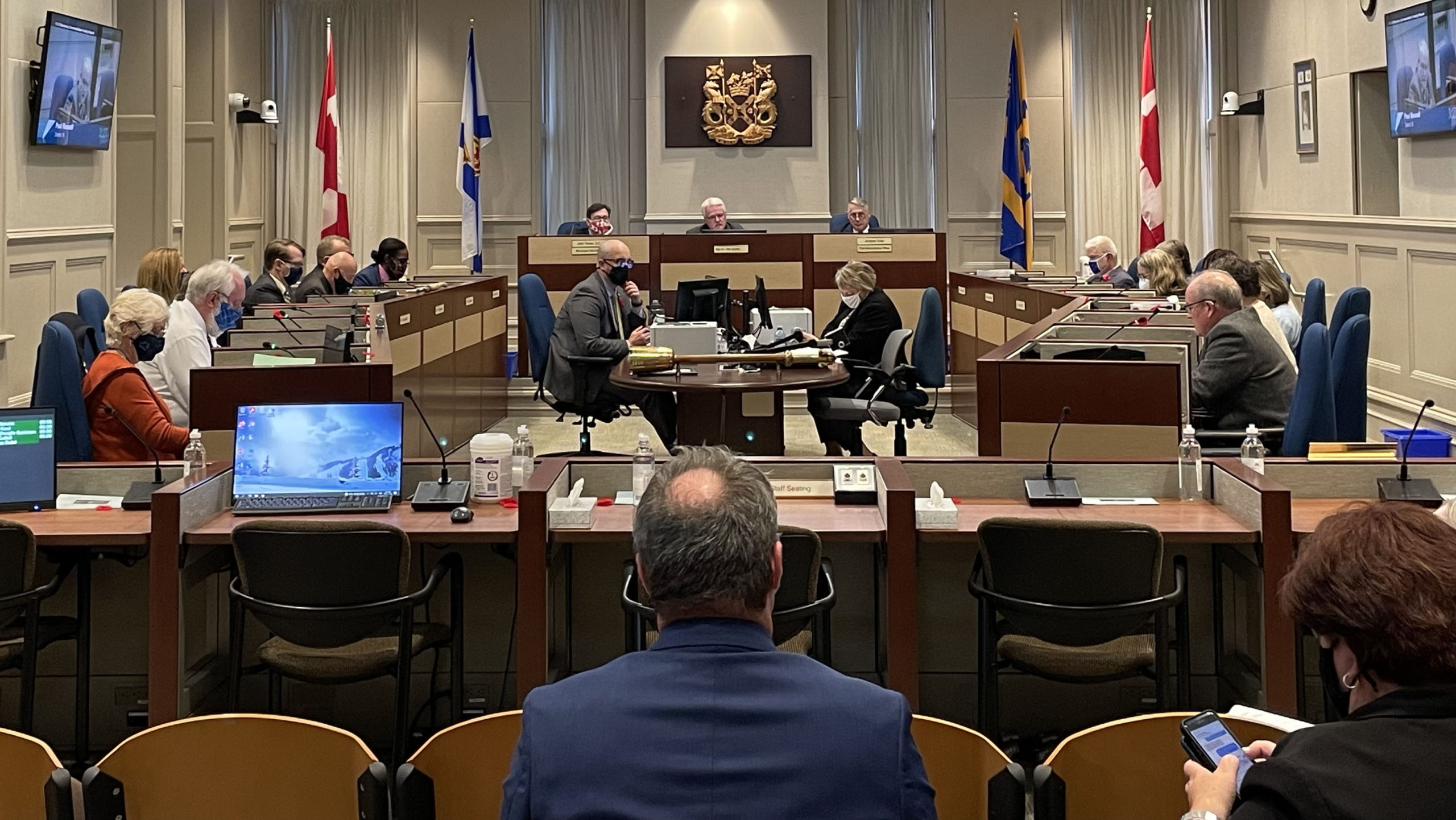Halifax council moves ahead with 3-year sobering centre pilot
Program stems from death of intoxicated man in police custody

caption
Halifax Regional Council approved a pilot project to create a sobering centre in the city.Halifax regional council voted on Tuesday to approve a pilot project that would create a sobering centre, which would have 10 beds for intoxicated individuals to safely sober up in a monitored environment.
The program would start by April 1, 2023, if the province also agrees to fund the pilot as presented.
“If we had a sobering centre, would this have made a difference to Corey Rogers and that family? I don’t know,” Coun. Tony Mancini said during the council meeting.
Corey Rogers was a 41-year-old who was arrested for public intoxication in 2016 and brought into Halifax Regional Police headquarters, where he died.
The proposal comes after a presentation to the city’s Board of Police Commissioners in 2020 by Harry Critchley, the vice-chair of the East Coast Prison Justice Society, advocating for Halifax to build a sobering centre. Critchley’s presentation said that Rogers’ death was preventable.
“We’ve gone to the prisoner care facility, where literally, you’re brought in, your shoelaces are taken off, and they throw you into the, what was called by everybody, the drunk tank,” Mancini said in an interview after the meeting. “We have had examples where things went terribly wrong.”
Coun. Lindell Smith filed a motion in 2020, seeking a staff report on the feasibility of a sobering centre in the HRM after Critchley’s presentation. Council agreed and the sobering centre pilot is the outcome of the staff report.
Councillors Paul Russell, Pam Lovelace, and Trish Purdy were the three councillors who voted against the motion to proceed with the pilot. Russell has voted against the centre before, while this is the first time Lovelace and Purdy have voted against it.
A sobering centre in Halifax could divert many people from emergency services, according to the pilot plan.
The pilot plan said that between the prisoner care facility and hospital emergency departments, there are seven to 10 intoxication intakes a day in the city.
Smith said in Tuesday’s meeting that the number of intakes related to intoxication was “the most impactful aspect” of reading the plan.
The staff report outlines examples of sobering centres in other cities where the municipality plays a role.
Provincial responsibility and taxpayer dollars
Russell said in an interview that he has consistently opposed motions on the sobering centre because it is a service he believes should be provided by the province.
“It is a service that falls under the social side of things that the province is responsible for, along with health and education and everything along that spectrum.”
In an interview, Mancini said the province and the municipality are not on good terms and said, “This is an opportunity to work together.”
Coun. Shawn Cleary disagreed with Russell and said it is a municipal responsibility because “they are the cops we pay for.”
“I think it is money well spent because it will help the individuals affected, it will help HRP or RCMP, and it will help society overall.”
Purdy would like to see the province fund most of the project, mentioning budget deliberations that council will continue on Friday.
“If this didn’t cost our taxpayers anything, I would be totally in support of this,” Purdy said during the meeting.
“But on the eve of an eight per cent recommended tax increase budget season? I don’t know. Is this the time to start a new project even though it is a well-conceived plan?”
The program has a 50/50 cost split with the province. If the province agrees to the pilot, HRM and the province will spend $140,000 this year, and each share will rise to about $500,000 each of the next two years.
Public safety officer Amy Siciliano works for the municipality and was at the meeting to answer questions regarding the pilot from the council.
“I have a strong indication from the province that they would fund the pilot for three years,” said Siciliano.
Chief administrative officer Jacques Dubé said in the meeting that approval from council is just a step in the process. The municipality will have to complete negotiations with the province and report back to Siciliano for approval.

